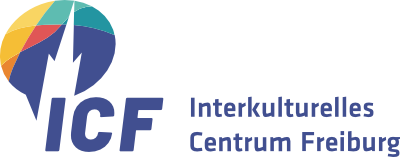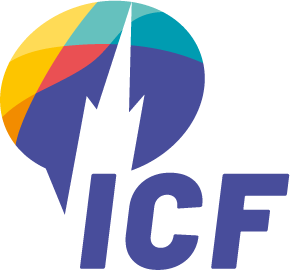Frequently asked questions
ICF-Centrum is officially recognised as a training provider for the implementation of qualification measures for health professionals (doctors, pharmacists, nursing staff) and AZAV-certified. Therefore, you can apply for a visa with the binding registration confirmation from the ICF Centre.
No. ICF-Centrum supports international doctors in applying for German licensure nationwide.
ICF specialises in accompanying foreign health professionals during the recognition process and subsequently integrating them into the German health market:
- Our qualification programmes offer a high degree of practical orientation.
- We involve numerous experts from the field
- Our participants benefit from high-quality and multimedia teaching materials.
- We offer individual counselling and coaching on career issues.
- Our participants, lecturers and partners can actively participate in the further development of learning content, materials and services.
- We guarantee consistent quality assurance of all qualification measures, materials and services.
The preparatory courses ft he specialist language examination are taught by specialised lecturers who have both medical expertise and extensive experience in the field of German as a foreign language. The medical seminars within the framework ft he preparatory course ft he specialist language examination are led by the as well as highly qualified medical specialists.
The preparatory courses for the knowledge examination are taught by experienced specialists in the respective field. The lecturers are highly familiar with the content and procedure for the knowledge examination.
If the course does not meet your expectations, you can cancel it after the first lesson without having to give any reasons. We will refund your money without any ifs or buts.
Our courses have between 8 and 15 participants. So we have small groups, which is very positive for the learning success.
Since 2017, a German B2 general language certificate is no longer sufficient to work as a doctor or pharmacist here in the whole of Germany. You now have to pass a specialist language exam for at the local Chamber of Physicians or Pharmacists (level C1).
In most states, however, in order to be admitted to this specialist language test at all, one must present a Zertifikat Deutsch B2 (general language).
For admission to the ICF course, it is therefore necessary to present a German B2 language certificate at the latest at the beginning.
Yes, if you want, you are welcome to get support in an open and transparent professional placement process to quickly get the job you need. That is part of the ICF service. The professional contacts and procedures are guaranteed at the ICF Centre.
The knowledge examination refers to the content of the German studies. The foreign doctor must prove that he or she has the same knowledge that is required of domestic graduates of medical schools. Since a legal ordinance came into force on 1 January 2014, the focus of the examination has been on the subjects of internal medicine and surgery. The questions are to consider the following aspects in addition: Emergency medicine, clinical pharmacology/pharmacotherapy, imaging procedures, radiation protection, legal issues of medical professional practice. In addition, the competent authority may, in the run-up to the examination, determine a subject or a cross-sectional area as relevant to the examination in which it has identified significant differences between medical training in Germany and the applicant's training.
The knowledge examination is an oral-practical examination with patient presentation and lasts between 60 and 90 minutes. It can be repeated a maximum of two times. An appointment for the knowledge examination must be offered to the applicant within six months of the decision. Unfortunately, this deadline is often exceeded.
All foreign doctors who wish to practise medicine in Germany must have their medical diploma (medical training) recognised by the competent Land authority. In some states there is only one approbation authority, other states have several approbation authorities in the various regions. The authority responsible is the one in whose catchment area the doctor wishes to work.
The states‘ medical associations are responsible for recognising specialist doctor diplomas. The recognition of the specialist doctor's diploma is the responsibility of the State Medical Association in whose catchment area the doctor wishes to work. Most medical profession and chamber laws also require membership in the medical association.
Doctors who have completed their medical training outside Germany must apply for a separate decision on the equivalence of their professional qualification. Proof of German language skills is not required for this. However, the licence to practise medicine will not be issued until the necessary knowledge of German is available and all other requirements have been met.
No. The application for a licence to practise medicine or a professional permit may only be submitted to the authority in whose catchment area the medical practice is intended. The doctor must therefore decide in which region he wants to work before submitting the application.
The competent licensing authority will provide information on which documents are necessary for the recognition of the doctor's diploma.
A medical training completed in the EU is automatically recognised in Germany upon application, provided that the qualification is listed in the European Professional Recognition Directive (2005/36/EC, Annex V No. 5.1.1), the minimum criteria of the Directive have been met and the training was started after the specified cut-off date. The statutory deadline for the recognition of professional qualifications to be automatically recognised is a maximum of three months after receipt of all required documents by the competent licensing authority.
Since the EU has concluded corresponding agreements with Norway, Iceland, Liechtenstein and Switzerland, medical training completed in these countries is equivalent to qualifications from EU countries.
Provided that all other requirements (knowledge of German, health suitability, exemption from punishment, etc.) are met, the applicant receives the licence to practise medicine.
Medical diplomas obtained outside the European Economic Area and Switzerland are first subjected to an equivalence test in Germany by the competent licensing authority.
If the competent authority determines that the foreign diploma is equivalent or that differences in training can be compensated for by relevant professional experience or other recognised knowledge and skills (lifelong learning) and all other requirements (knowledge of German, no criminal offences, health suitability, etc.) are met, it issues the licence to practise medicine.
If the competent authority is of the opinion that there are significant differences between the medical training of the country of training and the medical training in Germany, it may insist on the taking of a knowledge test, unless the differences in training can be compensated by relevant professional experience or other recognised knowledge and skills. The professional experience, knowledge and skills may have been acquired worldwide.
In rare cases, it may happen that the licensing authority does not consider the medical training to be equivalent and that, due to serious deviations, no knowledge examination is offered to prove an equivalent level of knowledge. In these cases, it is not possible to work as a doctor in Germany.
The equivalence examination and the assessment of professional experience and other recognised knowledge and skills is a case-by-case examination by the competent authority. The statutory time limit for the equivalence examination is a maximum of four months after receipt of all required documents by the competent licensing authority. Unfortunately, this deadline is often exceeded.
Foreign doctors who have been in Germany for at least three months can receive a subsidy of up to 600 euros. The prerequisite for the "recognition grant" is that they have only limited financial means and the costs are not covered by the employment agency or another state agency. The application must be submitted before the start of the recognition procedure. Among other things, costs for translations, certification of certificates, expert opinions and fees can be funded.
Further information on the "Recognition Grant" and the application forms can be found on the "Recognition in Germany" portal at www.anerkennungszuschuss.de. Questions about the recognition grant can be answered by the Research Institute for Vocational Education and Training (f-bb) gGmbH (telephone: 0371 4 33 11 222, e-mail: anerkennungszuschuss@f-bb.de, www.f-bb.de).
In most states, the same language requirements apply to the granting of a professional licence as to the granting of a licence to practise (see question 21). There are deviations in the following Länder:
Baden-Württemberg: Examination certificate B2 (CEFR) of a recognised language institute. The specialist language examination of the Baden-Württemberg Medical Association must be submitted promptly.
Berlin: Examination certificate B2 (CEFR) from telc, Goethe-Institut or TestDaF.
Bremen: Examination certificate B2 (CEFR) from a recognised language institute and personal interview with the authorities.
Hamburg: Examination certificate B2 (CEFR) from a recognised language institute (in the case of a possible extension of the professional permit for more than 1 year, the specialist language examination of the Hamburg Medical Association level C1 must also be passed).
As the requirements can change at any time and deviations are also possible in justified exceptional cases, it is strongly recommended that you enquire about the current regulations at the competent licensing authority.





